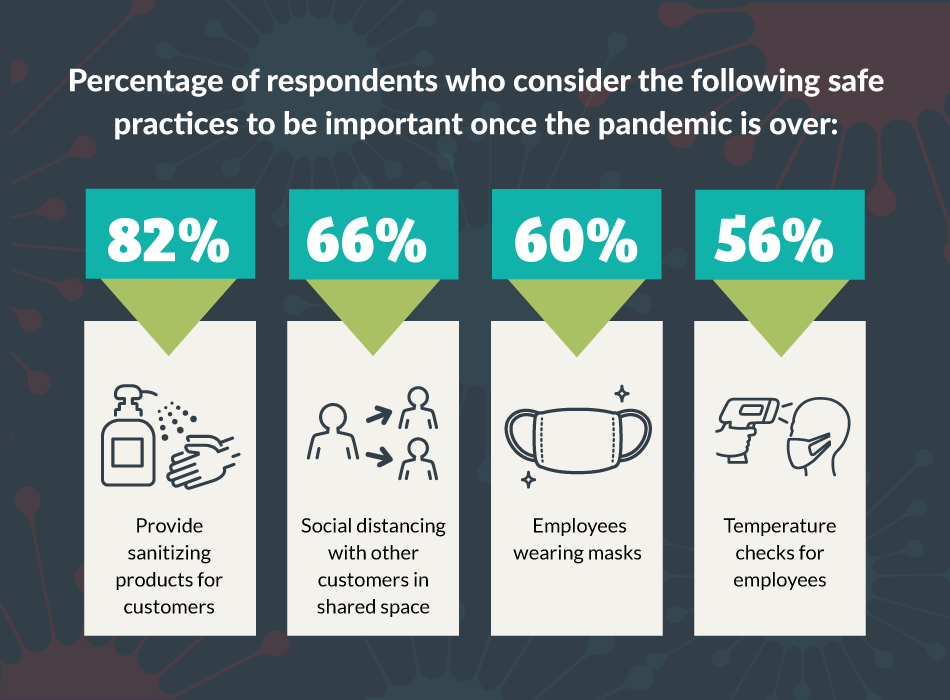There has been widespread discussion about how people’s decisions regarding travel and tourist activities have changed since the COVID-19 pandemic began. Now findings from a thorough study shed light on the specifics of the general public’s attitudes toward travel and hospitality—thanks to the leadership of researchers at Temple University’s School of Sport, Tourism and Hospitality Management (STHM) and its U.S.-Asia Center for Tourism and Hospitality Research.
Since April 2020, STHM researchers have led a multi-wave national survey on U.S. consumers’ sentiments toward these industries, both now and once the pandemic subsides. The primary investigators are Assistant Professor Lu Lu and Professor Xiang (Robert) Li, director of the Center and chair of STHM’s Department of Tourism and Hospitality Management. The fourth wave of research, completed in fall 2021, reflects some of the study’s most relevant and impactful findings and follows up on the initial results from the survey in 2020.
The survey was distributed to a national sample of more than 800 individuals, 18 and older, from across the U.S. Researchers were also careful to ensure that the distribution reflected demographics of the U.S. Census from 2019 according to age, gender, ethnicity and region.
One set of findings showed that respondents were willing to visit various hospitality sectors over the next few months (starting in late October–early November 2022) and beyond. “There was some good news to emerge from the results,” says Li. “Though the restaurant industry has been hit hard, we found the majority of individuals plan to visit restaurants at the same levels of frequency as before the pandemic.” However, results reflect that respondents felt more conservative about resuming other travel experiences, such as in the cruise industry.
Specific findings on consumer confidence regarding travel safety
The study showed that, overall, individuals are up to the tasks of masking, social distancing and other safety guidelines with regards to travel and hospitality activities. Survey respondents felt relatively confident (average of 5 and above on a scale of 1 to 7) in response to questions about their ability to protect themselves from COVID-19 during travel.
One set of data reflects that respondents consider the following practices important once the pandemic is over:
“Providing sanitizing products for customers,” by 82% of respondents
“Practicing social distancing with other customers in shared spaces,” by 66% of respondents
“Employees wearing masks/protective gear,” by 60% of respondents
“Temperature checks for employees,” by 56% of respondents
In addition, a comparison of multiple waves of research suggested an increasingly positive sentiment over time (May 2020–November 2021). Participants (%) indicated their intentions to visit the following are “about the same” or “much more than” pre-pandemic (March 2020).
| Wave 4 (Nov. 2021) | Wave 1 (May 2020) | |
|---|---|---|
| Quick-service restaurants | 82.28% | 71.40% |
| Casual/mid-scale restaurants | 73.66% | 62.80% |
| Upscale/fine-dining restaurants | 64.81% | 53.40% |
| Coffee shops and bakeries | 75.84% | 66.50% |
| Theme parks and other outdoor entertainments | 62.14% | 50.90% |
Lu points out that these findings, as representative of the majority of the participants, could be good news for the airline industry that has been hit so hard over the last 20 months.
In terms of a willingness to resume travel overall, the data with respect to leisure travel differed dramatically depending on whether the topic was domestic or foreign travel. Results showed that 19 percent of respondents were willing to resume travel domestically “immediately,” while only 3 percent were willing to travel internationally right away.
“The U.S.-Asia Center and STHM are always striving to be a leader in terms of impactful research,” says Li. “The fact that we have conducted four waves of the study reflects our consistent effort to contribute to the field in a highly influential way.” The findings of the multi-wave project are disseminated via multiple outlets including media interviews and research publications. What is more, Lu emphasizes how the first-hand knowledge that emerges can serve as an educational resource that informs what students are learning in the classroom.
A broader look at the project and the results of this most recent wave are available here. For more information, contact Li at robertli@temple.edu or Lu at lu.lu0001@temple.edu.
